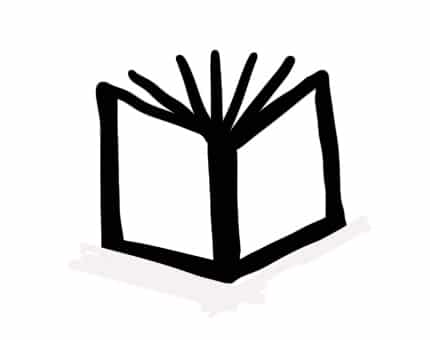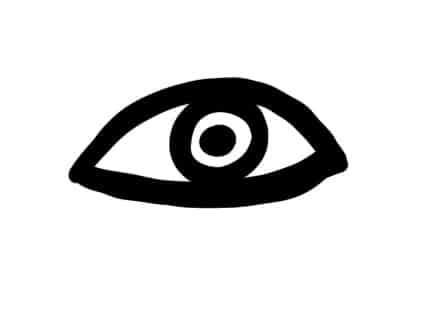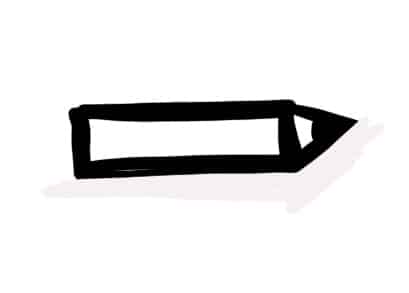 Turns out that publicly writing about one’s flaws and strengths is harder than I anticipated. After being asked to write a story to frame tashlich this year, I immediately started reflecting. What do I want to let go of? Who do I want to be? Even though I’ve practiced tashlich almost every year, this deep dive into my past year felt different and more uncomfortable. I’m used to keeping my personal reflections in my head (and was very content with that). This year, not only was I putting my thoughts into writing, but also I was asked to share with others.
Turns out that publicly writing about one’s flaws and strengths is harder than I anticipated. After being asked to write a story to frame tashlich this year, I immediately started reflecting. What do I want to let go of? Who do I want to be? Even though I’ve practiced tashlich almost every year, this deep dive into my past year felt different and more uncomfortable. I’m used to keeping my personal reflections in my head (and was very content with that). This year, not only was I putting my thoughts into writing, but also I was asked to share with others.
It’s fair to say that I was well outside of my comfort zone. I think it’s necessary to be uncomfortable sometimes, so, though it felt weird, I continued reflecting, writing, and editing. I recalled moments of antiracism in the world around me. I was constantly asking those closest to me for their thoughts: bringing my ideas to the dinner table, FaceTiming my college friends, and journaling by myself. One day, I started to discuss what was on my mind with a close childhood friend. We went back and forth sharing perspectives, leading to a fairly long and in-depth conversation.
I wanted to self-reflect further. I came home from that conversation, satisfied, but feeling uneasy about sharing a public narrative (yet here I am). Over the past few weeks I’ve been working with Tali, Temple Israel’s Assistant Director of Social Justice Engagement. We had been talking about what tashlich means and how we are going to reframe the experience through an antiracist lens in a meaningful way. I was thinking, rethinking, editing, reediting, and trying to figure out what it meant to reframe tashlich.
I then realized that it’s about this process and journey. Shouldn’t self-reflection include taking your thoughts out of your head and bringing them into conversation? I had engaged in vulnerable discussions, thought critically about who I want to be, and asked those close to me for their guidance. These traits of listening, being self aware, reflecting, and holding myself accountable are what I hope to take into the new year. It’s not possible to completely throw away our missteps, but we always have the opportunity to learn from them. This year when I throw day-old challah into the Charles River, these are the concepts that I won’t just be thinking about but that I’ll be talking about. This reframing of tashlich allows us to turn our words into actions at a time when social action is more important than ever. How can I shape my future and “grow away” from my missteps? Through reflection. Through community. Through conversation.
Reflect
- What are some missteps relating to antiracism that you hope to “grow away” from this year?
- How will you plan to step out of your comfort zone as you act toward being an antiracist?
Act
- Participate in this alternative tashlich this year. Instead of throwing away our missteps, move forward toward antiracism by talking with an accountability partner about what you hope to “grow away” from. Consider participating in TI’s tashlich service, listening to Cantor Stillman’s tashlich medley and adding this poem.
- All are invited to join Temple Israel tonight at 8:00 p.m. for Havdalah led by multiracial and multiethnic Jews in the TI community. We will draw on a diverse array of Jewish traditions and we hope to see you there. Come prepared with turmeric, coriander, and cumin so that we can experience this South Asian scent together.
Create
- Connecting to your sense of smell through drawing and creating a simple spice box for Havdalah. Smell and connect to a variety of spices and draw the experience of smelling these different aromas.
- Draw to your sense of smell and create a spice box:
Draw to your sense of smell and create a spice box from Temple Israel of Boston on Vimeo.







 During the protests after George Floyd and Breonna Taylor’s murders, my husband and I decided to take our children to a silent vigil in Roslindale. I reached out to an African American friend who also lives in Roslindale to see if she might be going. We first texted about pandemic life and then I asked if I might see her there. She replied, “No. We won’t be there.”
During the protests after George Floyd and Breonna Taylor’s murders, my husband and I decided to take our children to a silent vigil in Roslindale. I reached out to an African American friend who also lives in Roslindale to see if she might be going. We first texted about pandemic life and then I asked if I might see her there. She replied, “No. We won’t be there.” Grocery shopping in a pandemic is a stressful experience for most, and you might imagine even more so for me, a Black man with pre-existing health conditions. But I love grocery shopping!
Grocery shopping in a pandemic is a stressful experience for most, and you might imagine even more so for me, a Black man with pre-existing health conditions. But I love grocery shopping! Although my profession required a lot of writing, I never enjoyed the challenge. Now, as a 90 year old, writing, unlike reading, is an unwelcome chore. This makes me wonder, why am I totally enjoying the task of writing and rewriting “Your vote is your voice and your power” on the Reclaim Our Vote postcards to mostly Black voters in southern states? Maybe because a lifetime of learning has taught me that the vital work of being an antiracist is not close to being done.
Although my profession required a lot of writing, I never enjoyed the challenge. Now, as a 90 year old, writing, unlike reading, is an unwelcome chore. This makes me wonder, why am I totally enjoying the task of writing and rewriting “Your vote is your voice and your power” on the Reclaim Our Vote postcards to mostly Black voters in southern states? Maybe because a lifetime of learning has taught me that the vital work of being an antiracist is not close to being done. In 2017, I created “MITZVOTERS” with 14 of my interfaith friends from college. Every month—42 months running—we each donate $75, collectively pooling more than $1,000. And then we give it away. So far, we’ve disbursed nearly $30,000 to nonprofit organizations, people with medical expenses, restaurants during COVID, schools, scholarships, and entrepreneurs.
In 2017, I created “MITZVOTERS” with 14 of my interfaith friends from college. Every month—42 months running—we each donate $75, collectively pooling more than $1,000. And then we give it away. So far, we’ve disbursed nearly $30,000 to nonprofit organizations, people with medical expenses, restaurants during COVID, schools, scholarships, and entrepreneurs. My college essay was about crying on the floor in the gas chambers of Auschwitz, as I felt my ancestors in that moment. I went there as part of my high school semester long program in Israel. Every day, we would spend four hours learning about Jewish history. “Four thousand years of Jewish history in four mouths, four hours a day,” was the boastful cry of the recruiters. When we got to the part of Jewish history leading up to the Holocaust, we boarded a plane to Prague. We saw beautiful synagogues and vibrant Jewish history in the Czech Republic, and started to hear about the anti-Semitism peeking out from the margins as it made its way into the mainstream. Then, we went to Terezin, and learned about the transport trains to the death camps. AND THEN WE GOT ON TRAINS TO POLAND. And we visited Auschwitz and Birkenau. And it was intense, and powerful, and I saw pictures of girls with my name spelled the same way which I had never seen before and I saw my last name and I saw people who looked just like me and I wondered if they were my relatives but we just didn’t know because everything had been lost.
My college essay was about crying on the floor in the gas chambers of Auschwitz, as I felt my ancestors in that moment. I went there as part of my high school semester long program in Israel. Every day, we would spend four hours learning about Jewish history. “Four thousand years of Jewish history in four mouths, four hours a day,” was the boastful cry of the recruiters. When we got to the part of Jewish history leading up to the Holocaust, we boarded a plane to Prague. We saw beautiful synagogues and vibrant Jewish history in the Czech Republic, and started to hear about the anti-Semitism peeking out from the margins as it made its way into the mainstream. Then, we went to Terezin, and learned about the transport trains to the death camps. AND THEN WE GOT ON TRAINS TO POLAND. And we visited Auschwitz and Birkenau. And it was intense, and powerful, and I saw pictures of girls with my name spelled the same way which I had never seen before and I saw my last name and I saw people who looked just like me and I wondered if they were my relatives but we just didn’t know because everything had been lost. I don’t usually pay attention to my race that much: my skin is white, just like the 76.5% rest of the U.S.* Before I realized I was immersed in an unfair world (with racism) I never considered myself lucky to be white. It just felt “normal.” Earlier this summer I took part in an Internship for 5-7th Graders at Temple Israel called “How to be an Antiracist”. After watching a video with the internship about how all white people are racist, I first felt a little offended. I’ve never done anything racist (or at least never tried to)! But something dawned on me. I’d never had that many black friends before: always white. Now, I realize that I made the assumption that all black people weren’t as smart, and weren’t as “cool.” Thinking back on this, I was a racist. As I go into middle school, I hope to make friends with someone racially different than myself.
I don’t usually pay attention to my race that much: my skin is white, just like the 76.5% rest of the U.S.* Before I realized I was immersed in an unfair world (with racism) I never considered myself lucky to be white. It just felt “normal.” Earlier this summer I took part in an Internship for 5-7th Graders at Temple Israel called “How to be an Antiracist”. After watching a video with the internship about how all white people are racist, I first felt a little offended. I’ve never done anything racist (or at least never tried to)! But something dawned on me. I’d never had that many black friends before: always white. Now, I realize that I made the assumption that all black people weren’t as smart, and weren’t as “cool.” Thinking back on this, I was a racist. As I go into middle school, I hope to make friends with someone racially different than myself. On Rosh Hashanah, we greet each other with the words shanah tovah u’metukah, may you have a good and sweet year. Upon hearing this for the first time, I wondered why we wished each other a good and sweet year—does having a good year not also imply having a sweet year? Is saying both not redundant? The events of 2020 have proven that, among all of the bitter moments, goodness and bitterness are not mutually exclusive; in bitter moments, goodness can still exist. From the sourness of the COVID-19 pandemic that has disproportionately harmed people of color, to the bitterness of racism and police brutality that has taken countless Black lives, it is clear that this year has had more than its fair share of bitterness. What goodness possibly exists in all of that? The hope of building an antiracist tomorrow is the answer.
On Rosh Hashanah, we greet each other with the words shanah tovah u’metukah, may you have a good and sweet year. Upon hearing this for the first time, I wondered why we wished each other a good and sweet year—does having a good year not also imply having a sweet year? Is saying both not redundant? The events of 2020 have proven that, among all of the bitter moments, goodness and bitterness are not mutually exclusive; in bitter moments, goodness can still exist. From the sourness of the COVID-19 pandemic that has disproportionately harmed people of color, to the bitterness of racism and police brutality that has taken countless Black lives, it is clear that this year has had more than its fair share of bitterness. What goodness possibly exists in all of that? The hope of building an antiracist tomorrow is the answer. Actions speak louder than words, the saying goes, and that is what happened around our kitchen table.
Actions speak louder than words, the saying goes, and that is what happened around our kitchen table.